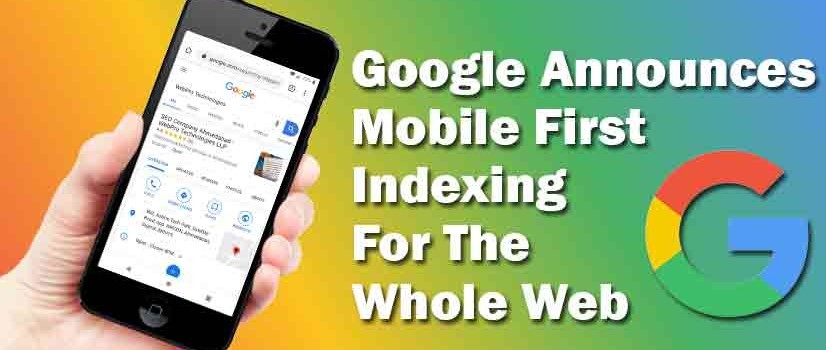Gary Illyes, Google webmaster trends analyst, during a SMX Advanced conference in Seattle in June 2017 had mentioned that the Mobile-First index is going to be huge.
Illyes had said:
“We don’t have a timeline for the launch yet but, we have some ideas for when this will launch, but it’s probably many quarters away. Our engineers’ timeline was initially end of 2017. Right now, we think more 2018.
Our blog Post: https://www.webpro.in/google-rolls-out-mobile-first-indexing-some-important-faqs-answered/ published in April 2018 , answers the following FAQs about Mobile First Indexing.
- What Does Mobile First Indexing Mean?
- How does Google evaluate sites for Mobile First Indexing?
- What are the best practices for Mobile First Indexing?
- Does Mobile First Indexing affect rankings?
- How does the page load time affect mobile-first indexing?
- How does Google notify webmasters/site owners that their websites have been migrated to mobile-first index?
Yesterday, Google has announced Mobile First Indexing for the whole web. Google published on their webmaster’s blog:
From our analysis, most sites shown in search results are good to go for mobile-first indexing. 70% of those shown in our search results have already shifted over. To simplify, we'll be switching to mobile-first indexing for all websites starting September 2020. In the meantime, we'll continue moving sites to mobile-first indexing when our systems recognize that they're ready.
Google points the following regarding Mobile First Indexing:
- When Google switches a domain to mobile-first indexing, it will see an increase in Googlebot's crawling, while Google updates its index to the site's mobile version.
- In Search Console, there are multiple ways to check for mobile-first indexing. The status is shown on the settings page, as well as in the URL Inspection Tool, when checking a specific URL with regards to its most recent crawling.
- Google recommends making sure that the content shown for the mobile version and the desktop version is the same (including text, images, videos, links). The meta data (titles and descriptions, robots meta tags) and all structured data too should be the same.
- In the URL Testing Tools you can easily check both desktop and mobile versions directly.
- While Google continues to support various ways of making mobile websites, Google recommends responsive web design for new websites.
- Google suggests not using separate mobile URLs (often called "m-dot") because of issues and confusion Google has seen over the years, both from search engines and users.





